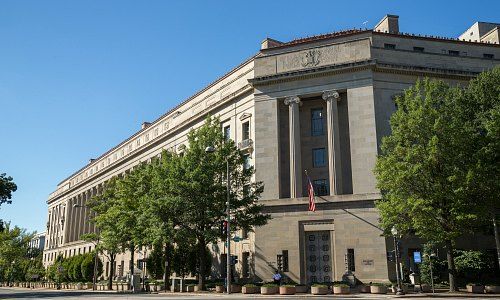U.S. prosecutors said they have successfully concluded a landmark program to sweep Swiss accounts clean of tax dodgers and cheats and collect fines from the banks harboring them. The financial reward for nearly four years of legal grunt work is surprisingly modest.
A U.S. and Swiss agreement reached in 2013 is a small part of a very large puzzle U.S. prosecutors are putting together to crack down on tax evasion and bring tax revenue back home.
The government-brokered scheme allowed Swiss banks to «voluntarily» come clean on sheltering American tax cheats with offshore accounts. The firms faced fines and penalties depending on how egregiously they had catered to tax dodgers, but were thus freed from further prosecution.
Late on Wednesday, U.S. prosecutors said they had won a total of $1.36 billion in penalties from the four-year effort after concluding agreements with 80 Swiss banks. This translates to an average $17 million per Swiss bank – a surprisingly low which will disappoint prosecutors, who went into the program with fervor.
Murky Reality
U.S. prosecutors painted the program as an unmitigated success.
«This groundbreaking initiative has uncovered those who help facilitate evasion schemes and those who hide funds in secret offshore accounts; improved our ability to return tax dollars to the United States; and allowed us to pursue investigations into banks and individuals,» U.S. attorney general Loretta Lynch said in a statement, in which she also thanked the Swiss government for cooperating.
The reality is somewhat murkier. Prosecutors had high hopes after the first bank to reach an agreement, now-defunct Banca della Svizzera Italiana, or BSI, paid $211 million to get out of the program.
But BSI's fate wasn't a taste of what was to come: besides a few isolated examples, fines were far lower than feared, while Swiss banks nevertheless groaned about the millions in legal and audit fees resulting from the U.S. program.
Pressure on Swiss Banks
Four banks and one cooperative – Raiffeisen – were successfully able to show U.S. prosecutors that they didn't deal in U.S. clients, finishing the program with a non-target letter which assures them they won't be criminally pursued.
Vontobel, which also grouped itself in this category, said earlier this week that it has also come out of the program, but not sought or received any U.S. justice letters or assurances.
The industry-wide framework was an offshoot of a criminal probe against more than a dozen Swiss firms, beginning with UBS in 2009. A raft of banks including Credit Suisse and Julius Baer have settled those probes, some like Wegelin and Bank Frey were put out of business because of it, while still others such as Geneva-based Pictet & Cie and local lender Zuercher Kantonalbank have yet to settle.
The pressure on this group of banks in the crosshairs was instrumental in convincing the wider industry to come forward «voluntarily» under the program.
U.S. Sights on Havens
The tension was at one point so great that even an asset manager Finacor came forward: the firm was told that it didn't qualify for the program because it wasn't a bank, but nevertheless paid a $295,000 fine.
Justice officials didn't mention the banks still being criminally investigated like Pictet or cantonal banks in Zurich and Basel, which years on still await their fate.
A Internal Revenue Service official made it clear that the U.S. will continue to root out its tax cheats.
«We are evaluating incoming information to detect accountholders who have evaded reporting overseas assets and income, and we are using this information to further untangle the web of financial institutions and intermediaries helping with this evasion,» the IRS' Douglas O'Donnell said.
«We have expanded our investigations to other regions of the world, and we will continue to apply these techniques to help protect honest taxpayers.»


































